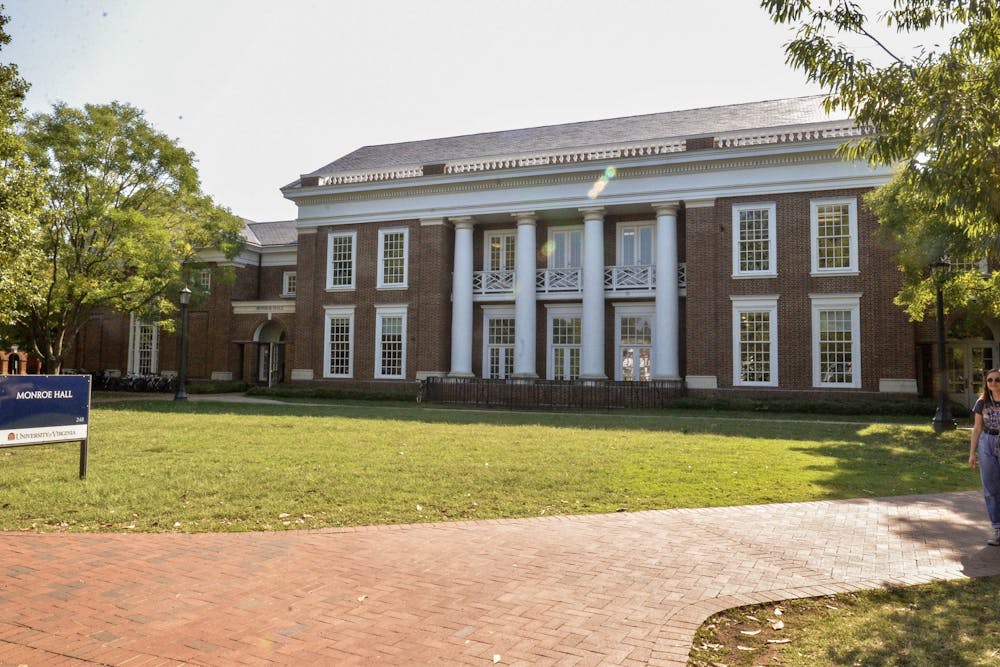Third-year College student Adwoa Asiedu recently garnered the support of the Third Year Council, Student Council Executive Board and Black Student Alliance on her Grade Forgiveness petition that proposes changes to current grading policies surrounding retaking a previously failed course. The petition is directed towards Provost Liz Magill, and Asiedu said she is in the process of sending the petition to her association dean as well as the Office of the Provost. Eighteen individuals have also signed on to the petition, which Asiedu has been working on for the past year and a half.
Currently, grades lower than a C do not qualify for credit towards a given major nor towards general undergraduate graduation requirements. However, only a course with a final grade of F can be retaken and, if successfully passed, have a grade adjustment where the new grade is averaged between the past grade and the new grade. This current policy, Asiedu said, puts students at a disadvantage when compared to their peers at other higher education institutions, especially when applying to graduate schools.
In contrast to the University’s policy, some universities have adopted grade forgiveness, a method of grading where a new grade can replace an old grade if students repeat a course and obtain a better grade. The policy has already been implemented at Old Dominion University, the University of South Carolina and Pennsylvania State University.
Under Penn State’s grade forgiveness policy — which will be implemented this summer — if a student earns a D or F grade in a course but then repeats the course and earns a better grade, the original grade can be forgiven. This means that the original course will still appear on the student's official transcript but will not count towards the student's cumulative grade point average. Further, University of South Carolina’s policy has nearly identical verbiage, except it limits grade forgiveness to two undergraduate courses while ODU’s policy — implemented in 2009 — limits grade forgiveness to five undergraduate courses.
This petition is extremely personal to Asiedu, who received a D- in Organic Chemistry last year. As it counted towards her major, she was forced to retake the course. She described how retaking a class while other classmates have a “clean slate” was extremely demoralizing because she had the added shame and discouragement of having failed a given course while her classmates did not and that failing grade was also represented in her GPA.
“Not being able to maintain that U.Va. image of perfection has been a source of shame for many students, especially as mental health becomes the foreground of COVID-19 discussions,” Asiedu said in her petition.
During the pandemic, Asiedu struggled with her mental health, which contributed to the dip in GPA. Her bout with depression was compounded by certain elements of culture — as a child of Ghanian immigrants, Asiedu noted how mental health has long been a taboo subject, despite her generation changing this stigma.
For Asiedu, the Grade Forgiveness Campaign is a step forward in alleviating the mental strain placed upon students.
“The lack of grade forgiveness [for] too many students supports the idea that they should be ashamed of themselves when it is not at all so,” the petition read. “By having grade forgiveness, the University would be reassuring students that while we all stumble sometimes, the University supports them when they pick themselves back up.”
Since then, Asiedu presented her petition to the Third Year Council for feedback as she drafted her petition, ultimately securing the body’s endorsement.
Casey Gottlieb, the chair of Third Year Council’s Academic and Career Development Committee and third-year College student, subsequently brought the petition before the Executive Board of the Student Council for their consideration, while third-year College student Deric Childress brought it before the Black Student Alliance. Ultimately, both the executive board and BSA signed on in support.
In the future, Asiedu hopes to secure more signatures from both students and student groups across Grounds. She will shortly send the petition to her association dean and the Office of the Provost for feedback from the administration’s perspective.
Moving forward, her strategy hinges upon working with students and administrators alike to determine how grade forgiveness may be implemented. She wants to share her experience and work with others to come to a solution of which they are all proud.
Throughout this process, she explained how coming forward with her story has also served as an impetus for personal growth. Describing herself as a “very private person,” she “almost felt that it was almost selfish … to not go and share my story and potentially help some people that actually would feel more shy and ashamed come forward than I do.”
While the petition details her personal experiences, Asiedu emphasizes that this is not just about her.
“I want this petition to be for the entire student body,” Asiedu said.
Representatives from the Third Year Council and Black Student Alliance did not respond to a request for comment.







